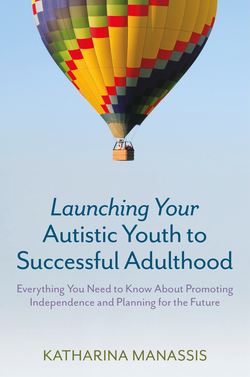Читать книгу Launching Your Autistic Youth to Successful Adulthood - Katharina Manassis - Страница 15
На сайте Литреса книга снята с продажи.
Chapter 2 Setting Goals Who Defines Successful Transition?
ОглавлениеHenry’s mother: It was an awful summer…endless job applications and no results!
Henry: It was a great summer. I was busy and I found a possible girlfriend!
Whose perspective is accurate, Henry’s or his mother’s? You probably already know the answer: both. Throughout your child’s life, you may have wrestled with differences over how to spend time, what goals to aim for, and what constitutes a good, productive day—or summer, as for Henry. Now that your child is nearing adulthood, those differences will factor into many important decisions about the future. Your son, like Henry, might be comfortable maintaining his usual routines and developing his social life, while you want him to prioritize working towards vocational success in the long term. Your daughter, hoping to become a surgeon, might not want to discuss anything except how happy she’ll be when she reaches her goal. Meanwhile, you might want her to demonstrate some adult life skills (e.g. learning to manage money or succeeding at a part-time job) before she considers applying to medical school.
You and your youth may define success in the transition to adulthood differently. In the example, Henry’s mother felt that she and her 20-year-old son had failed at the job search that she had worked hard to prepare him for, because they found he simply couldn’t compete with his non-autistic peers in job interviews, where he rarely looked people in the eye and mumbled in response to questions. Henry, on the other hand, had enjoyed attending an employment skills program for autistic youth over the summer. Not only did the regularly scheduled classes suit his love of routine, but he had met a girl who shared his interest in superheroes, and they had attended two superhero movies together over the summer. The fact that he had overcome his shyness to go on his first dates made Henry feel he’d had a great summer and made a great start on his path toward adulthood.
You might also need to consider other perspectives on the transition to adulthood, such as the opinions of professionals who are available to help your family along this path. You will struggle with whether those professionals are overestimating or underestimating your child’s abilities. Sometimes they know more than you do. For example, a trained psychologist may have a better idea of your child’s cognitive abilities than you do. Other times, they are “lumping” your child together with a handful of other autistic individuals they have seen, and may know little about your son’s or daughter’s specific abilities. In this case, their assessment of their potential may be quite inaccurate.
In this chapter, we look at different perspectives on the transition to adulthood, how to find common ground among them, how to set goals with your son or daughter, and how to communicate in ways likely to encourage progress rather than prompting resistance.
